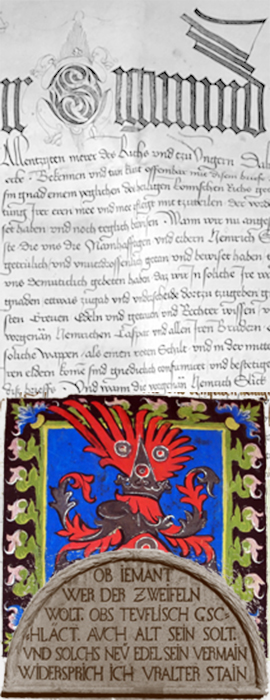Grey Eminences in Action
Personal Structures of Informal Decision-Making at Late Medieval Courts
FWF-Projekt I 4076
Project Leader:PD Dr. Andreas Zajic
Project Investigator:
Dr. Sonja Dünnebeil
Dr. Jonathan Dumont
MMag. Dr. Daniel Luger
Duration: 3/2019-2/2022
Studies into the formation of political elites and the forces driving integration of people into the symbolic and social system of the late medieval court as a point of contact and focus of political decision-making have long been established as a topic of European historiography on the Middle Ages. For quite some time, scholars have been debating the role that influential individuals at court played in shaping the policy of their kings. Predominantly, the most powerful counsellors and office-holders were regarded as favourites of the prince, benefitting personally from their disproportional credit with the rulers, a quality that sometimes made them prone to fall and elimination from court. Yet only during the last few years, scholars have emphasized the importance of trust and confidence as well as loyalty as crucial factors of mutual bonds between princes and people regarded as second to the king (secundus regi).
The project aims to investigate a small sample of persons who engaged in late medieval courts of the Roman kings and Emperors and gained influence on the rule of their lords (and often also on the person of the sovereign) to an extent that was not (primarily) according to their formal position in court hierarchy nor rooted in offices they held in the counsel or the chancery. By tracing the careers and biographies of the vice-master of the Bohemian chamber (or royal treasurer) to King Wenceslas, Sigismund Huler, the Italian Brunoro della Scala, key figure of the Italian party at the court of King/Emperor Sigismund, Sigmund Prüschenk, counsellor to Emperor Frederick III, and Zyprian von Northeim, called Serntein, “aulic” chancellor to Maximilian I, in comparison to the central role that Kaspar Schlick played – as Sigismund’s imperial chancellor and leading diplomat – in the subsequent service to three Roman Kings and Emperors, we try to establish a new typology of “grey eminences” at court that is meant to adjust and partly replace older concepts of favourites as intimates of the ruler. By examining outstandingly influential courtiers and key advisers, their careers and strategies of participation in rulership, we hope to disclose general personal structures of informal decision-making and late medieval court politics.
The international project, carried out as a close and integrative joint project, run by the teams affiliated to the IMAFO and the University of Brno: Šedé eminence v akci: neformální personální struktury na pozdně středověkých dvorech (GREMIA)
Project Leader: Mgr. Petr Elbel, PhD
Project Investigator: Mgr. Stanislav Bárta, PhD / Mgr. Ondřej Schmidt



